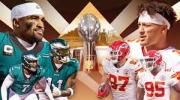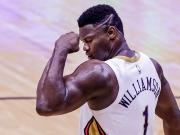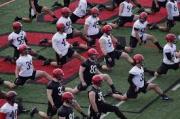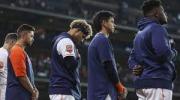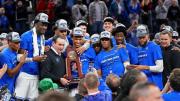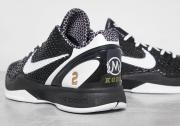Gene Therapy: What Should A Coach Do?
by Gene Clemons
When I first read the headline that the head volleyball coach at Grambling dismissed the entire volleyball team, I thought it was a joke or that there was something more to the story that I was missing. Upon further investigation, it was discovered that the new coach did in fact cut every young lady off her team. My first reaction was, "Damn! That’s cold-blooded!” The other people I talk to regularly all felt that this coach was wrong for what she was doing. I began to feel a weird duality at the time. As a player and a human being, I felt like this was the wrong thing to do but as a coach, I could understand the move. Ultimately, I don’t believe that I would have the ability to do that to players, but I can’t pretend that I don’t understand. So in an effort to explore this from the other side I wanted to explain why this may not be the last time you see a drastic move like this made.
I know how coaches who take over bad jobs get treated when they don’t win. They are treated as if they are failures, like it is their fault the team has not won. If it is their first opportunity as a head coach, they may never get another job. Every time they interview for a job, they must explain why they were not successful in their first stint. Most of the time we all know the real reason but we just don’t want to admit it. The players were not good enough and the coach was not given enough time to recruit better, implement or change a culture, and get the team going in a winning direction. But if a coach goes into an interview and blames a lack of talent, then it is received as if he is shifting the blame off himself. So coaches are almost forced to admit to shortcomings that they don’t really believe they possess in order to show that they have grown from their first opportunity.
Meanwhile the players rarely receive the scrutiny associated with losing. There is usually some accountability piece they are missing. So many players get to college and feel like the job is over. They have reached their goal and now is the time to reap the rewards of their hard work throughout the prep ranks. So they go to college and never improve beyond what they were in high school. Some believe they are being disrespected when they are not playing and they transfer but others don’t really care about playing as long as they are getting that scholarship money. That has a negative effect on the players who do play. They don’t feel the pressure coming from the players behind them and therefore don’t rise to the level they need to be in order to elevate the team. Rinse, wash, repeat and you end up in a situation that a lot of the non-revenue generating sports find themselves in, especially at HBCU’s.
Chelsey Lucas seems to know HBCU women’s volleyball very well. Before being named the head coach at Grambling, she was the head coach at Arkansas Pine Bluff for three seasons and before that she spent three seasons at Alcorn State. At both stops her overall record was under .500 and she had to make due with small victories. She improved both of the programs she took over and now she gets a chance to return to her Alma Mater which makes this story take an ever more interesting turn. Who knows the culture of Grambling volleyball better than a woman who had personal success representing the university on the court. She was a first team All-SWAC performer and defensive player of the year in 2006 for the Tigers. I am sure she could attest to the skill level and accountability inside the locker room. As someone from the outside looking in, if a coach felt this was what she needed to do in order for the team to have success, her experience would say that if anyone had an understanding of what to do it would be her.
Let’s not pretend as if this has not been done in some capacity before. Over the years coaches have found creative ways to separate players from a program. They have done everything from lowering scholarships to the bare minimum, to creating expectations that are impossible to meet. Every time you see a player enter the transfer portal you can't possibly believe it is because they want to, sometimes they feel they have no other choice. The writings on the wall. When Taulia Tagovailoa watched his brother Tua rise to superstar status at Alabama so he naturally thought he would follow in his big brother's footsteps. He quickly learned that it would not be the case and he transferred to Maryland. That may have been the best thing for him. It humbled him and probably made him work even harder to prove the people at Bama wrong or to live up to his own expectations. What Lucas did was cut out the histrionics that come with these moves or at least she thought she did.
Looking at this from a coach's perspective I bet she felt she was doing the best thing for the school, for those players, and definitely for herself. For the school, it's an opportunity to build a winning culture and a team that alumni and donors want to invest in. For the players it is a chance to possibly find a school better built for their skills or maybe it is the motivation necessary to raise their abilities and expectations. For her, it is a chance to create a legacy at the place she called home. An opportunity to help thousands of young ladies reach their full potential as players and as women why winning at a high level.
The one thing that we are not sure of but would absolutely be a necessity in this case is what is she doing to help those displaced young ladies find another home. We don't know how much scholarship money these ladies were on. We know it is volleyball and it is at an HBCU so it would not be irresponsible to say they probably don't have the same amounts of equivalencies as Penn State. Currently there is push back and outrage over the coach's decision and campaigns are in place to try and reinstate the players but ultimately who does that truly serve. If it is about playing the game the relationship is probably forever fractured. The only hope is that Lucas is helping those players find other homes to finish their careers and more importantly their degrees because that is still the main goal.
I'm sure all of the discourse and media attention surrounding this decision doesn't make the job easier. The old saying, "You have to crack some eggs to make an omelet" never tells you what happens when the shells get in the food. However, this episode plays out, if it doesn't end with winning Lucas will undoubtedly pay a steep price. If they win, it will cover up the stench of this decision and the fallout from it. She could go on to have a fruitful career and so many more women than she hurt with this decision but that is a big if. The team is 81-207 since 2011. That is a lot to turn around and as of now, the clock is ticking. I wish those young ladies nothing but the best, and I hope Lucas wins.
###
Gene Clemons is a Sports Analyst and Contributor to CWN Sports. His weekly column and podcast - Gene Therapy focuses on Sports, Politics and Social/Urban issues.
Read more
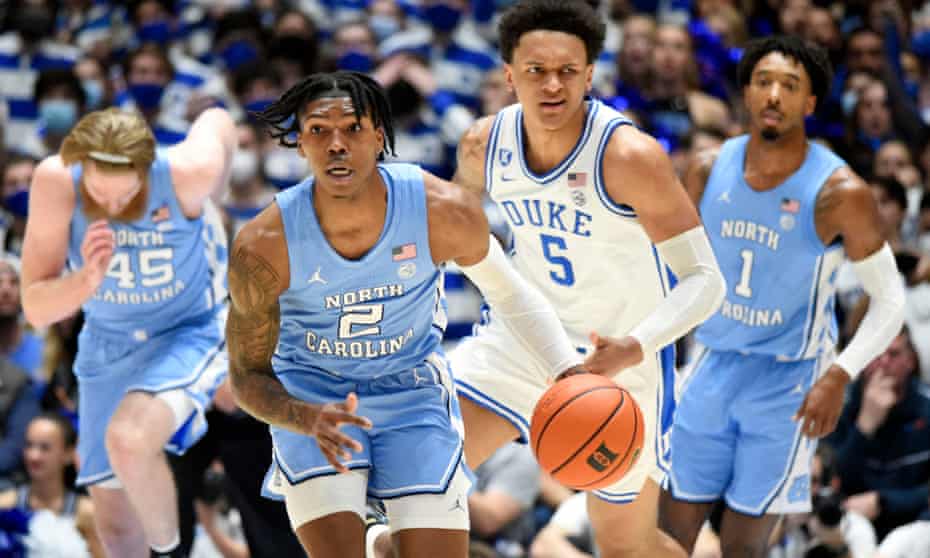



/cdn.vox-cdn.com/uploads/chorus_image/image/70646282/1386519175.0.jpg)
